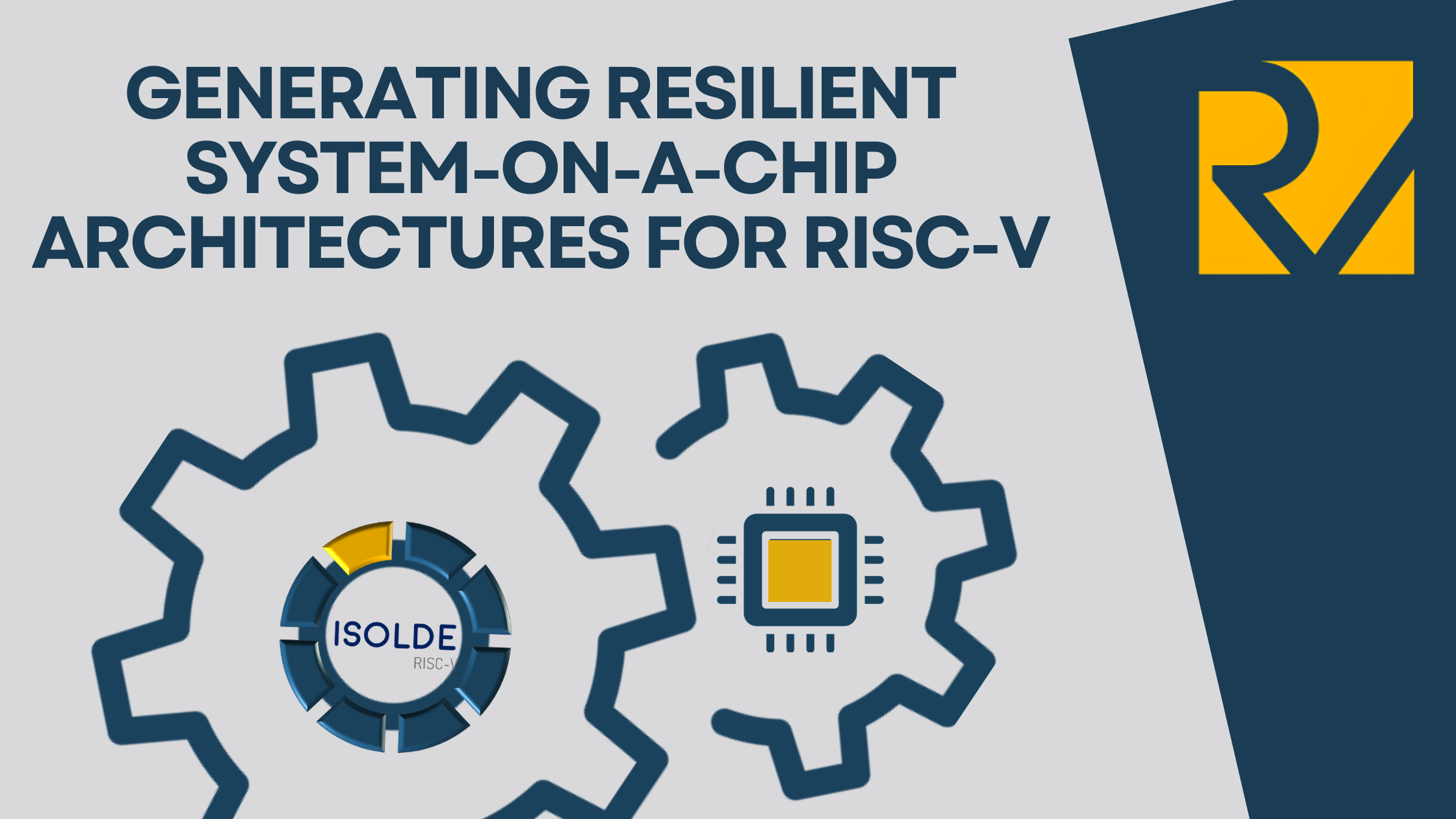
The overarching aim of ISOLDE is to provide a high-performance RISC-V based system-on-a-chip (SoC) with a level of functionality, safety, security and power efficiency that is competitive with existing commercial/proprietary alternatives.
At the FZI, we support this vision with an approach to integrate safety patterns for hardware using a model-driven design approach. The foundation builds the Rocket Chip Generator framework maintained by the Chips Alliance. Using a model-driven approach, the architecture of the hardware design is abstracted and transformations on this abstract model integrate different architectural safety patterns, such as Triple Modular Redundancy (TMR). By feeding back the modified model into the generator approach, the hardened architecture can be generated and afterward synthesized.
For the model-driven approach, we build upon the Universal Safety Format (USF), which was primarily designed for hardening software architectures. Within ISOLDE, we would like to adopt this format and the underlying principles for hardware designs. By choosing an approach originating form software, we anticipate creating a design flow that can address both the hardware as well as the corresponding software part that is often required when introducing hardware safety features, such as a watchdog timer.
This automated integration approach is supported by an early system-level/RTL co-simulation approach. We utilize the design artifacts of the Rocket Chip Generator, such as the RTL description of the peripherals as well as the device tree of the SoC, to generate simulation models and configure a QEMU core simulation. With such a simulation, it is possible to evaluate the hardware/software system, especially the effectiveness of the integrated safety mechanism.
The two approaches enable a rapid exploration of different safety architectures in the generative SoC design flow.

About the FZI:
As an independent foundation, the FZI Research Center for Information Technology has stood for applied cutting-edge research in the field of computer science and its application fields for over 35 years. The FZI researches and develops innovations for the benefit of society and offers excellent researchers a unique springboard to their professional future. For its partners from industry, business, science, associations, and the public sector, the FZI serves as an institution research, training and transfer.
Research teams at the FZI interdisciplinarily develop and prototype concepts, software, hardware and system solutions for their clients. Scientific excellence and interdisciplinary practice are therefore well established at the FZI.
Links: